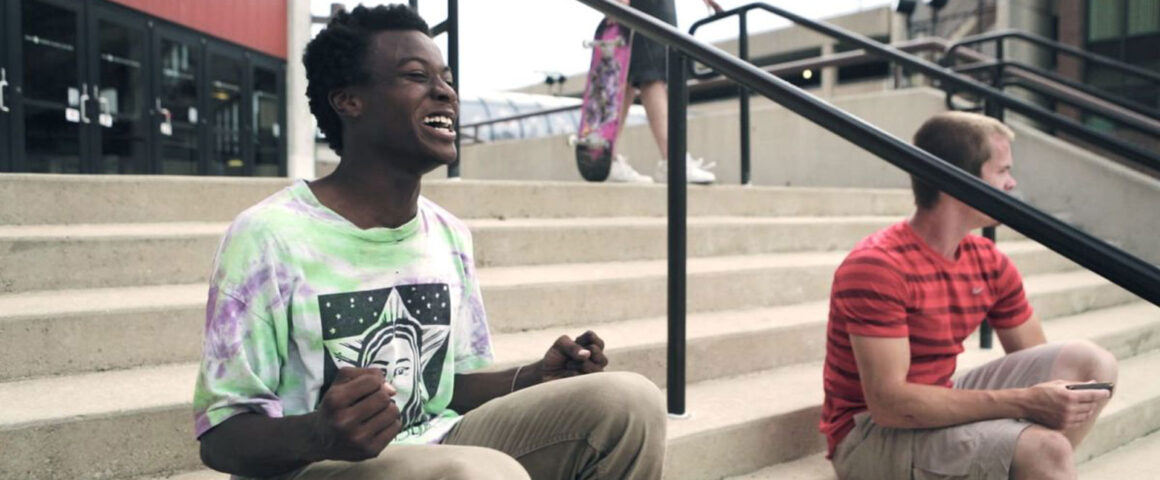During times of trouble, we seek a sanctuary. When it comes to craving peace or a place for refuge, religion is not the only outlet. For some, finding peace in life can come through your passion. In the case of three young men from Rockford, Illinois, peace is found through the art of skateboarding.
With his first feature, Minding the Gap, director Bing Liu crafts a movie that works to engulf the emotional core. As it initially unfolds, the story seems whimsical and overly aimless, testing our patience to prove it’s not some random skateboard movie. In the film’s opening sequence, Liu skillfully eases us into this world by enchanting us with sprawling and sweeping cinematography as he follows two skaterboarders through various streets and a spacious parking garage.
It’s a highly effective and engrossing technique that’s book-ended with smooth editing by Liu and Joshua Altman (“The Final Year”). Liu himself is a skater and the film’s cinematographer, who built his textured craft by working on camera units in films like “Divergent” and TV shows like “Shameless.” But Liu’s new film doesn’t follow the formula of a young adult dystopian future movie or a 13-episode season arc. Far from it.
What Liu ultimately delivers is a powerful coming-of-age tale of two young, 20-something year old men, Zack and Keire. Of the two, Zack could easily be labeled as the film’s breakout star. He’s affable, extroverted and says whatever comes to his mind. If he was running for political office, some might say, “He’s the guy I wanna have a beer with.” And Zack would probably take you up on that offer. Unfortunately, his drinking results in serious consequences and revelatory behavior.
As Liu’s fly-on-the-wall vérité style of filmmaking progresses, we learn Zack’s life is more than just hanging out with friends or skateboarding. He’s a new father, who’s struggling to better his education while managing a complicated relationship with his girlfriend, Nina. Liu doesn’t shy away from showing you the problematic aspects of Zack’s treatment of Nina, which puts on display the reoccurring central theme of the movie: The generational effects of domestic violence.
As Zack’s unfiltered philosophy may represent someone who is cynical about the future, Keire’s bashful grin represents someone who is more hopeful. Keire, like Zack, also comes from a lower economic background and has journeyed through the cycle of domestic violence. But his narrative profile re-conceptualizes the movie’s theme in regards to the sociological ramifications of race. While Zack is a young Caucasian male living in Rockford, Illinois; Keire is African-American. Liu deftly dives and digs into what it means to be black in a mostly white world, a topic that could be — and is in many cases — overlooked (especially by some non-minority filmmakers).
Lastly, bringing the story closer to home, Liu introduces viewers to his half-brother Kent and their mother, Mengyue, to recall horrific acts of Liu’s step-father and bring into light his motivation to make this film. Up to this point, Minding the Gap has been more or less a rambling look at young men dealing with injustices in small town America that lacked the bite of a weightier tale. With Liu’s personal injection of his family’s hardships into the film, it finds a sensitive footing, although one that comes together a bit awkwardly. And while the film doesn’t dwell on the trauma itself per se, Liu, showing he has the skill of a gifted filmmaker, deftly focuses attention on the spiritual stillness of how each process their experiences. It is a rewarding and intimate touch.



